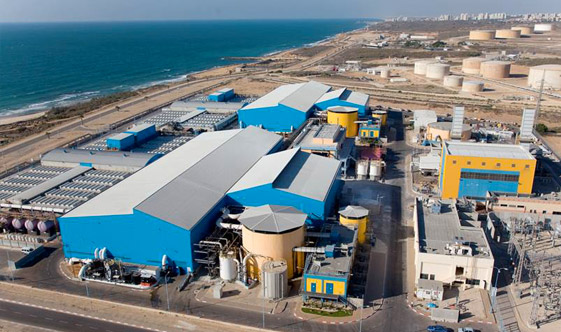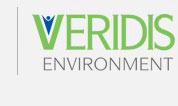Water
In many regions of the world water sources are diminishing. Entire countries and regions, as well as large industries, are facing a shortage of clear and fresh water. In coastal areas and arid environments, water desalination is proving to be the best available solution.
Ashkelon Desalination Plant
With an intake ability exceeding 330,000 m3 of seawater daily, the Ashkelon Desalination Plant produces about 20% of Israel’s household water consumption.
The Ashkelon plant is the first membrane desalination facility to be established in Israel. Since 2005, it has been supplying the highest quality water. Veridis operates the plant as part of a BOT (Build-Operate-Transfer) agreement. The plant was built with an investment of more than NIS 1 billion, and on completion was the world’s largest and most advanced.
The plant’s annual production capacity enables desalination of about 120 million m3 of seawater, up to drinking water-level quality, and fully in keeping with water and health authority requirements.
In order to meet the desalination plant’s electricity needs, an independent power station was built alongside it – one of the first independent power stations in Israel to run on natural gas. Veridis operates and manages the 83MW capacity power station, which works in synergy with the desalination plant to ensure the optimal performance of both systems.
For further information, please contact – info@groupve.co.il
Desalination Process at the Ashkelon Plant
Accomplished through gravitation by suction heads located about a kilometer from the coast, in order to collect initial seawater supply of the highest quality. The water flows into the plant through three pipes that are buried under the sea floor.

Slow filtering in two phases, including the use of multimedia filters, up to a level of 20 microns.

Before the desalination process itself, the water is filtered to an optimal cleanliness level, after which it is compressed at high pressure (70 atm) through a membrane system for separating salts. The system includes over 40,000 membranes with an overall surface area of 1.5 million m2, which are situated in pressure-resistant metal tanks. Separation is accomplished in four phases, to ensure removal of boron – which is harmful to health and agriculture, as well as viruses and bacteria, and to minimize salt content.

The system operates 20 pumps and 80 energy recovery units, which are used to reduce the mechanical energy of the desalinated water to a level of only 4%.

Adding minerals, in order to adapt the water for drinking.

Veridis is at the forefront of efforts to ensure a renewable water supply for consumers, as well as for the industrial and agriculture sectors
